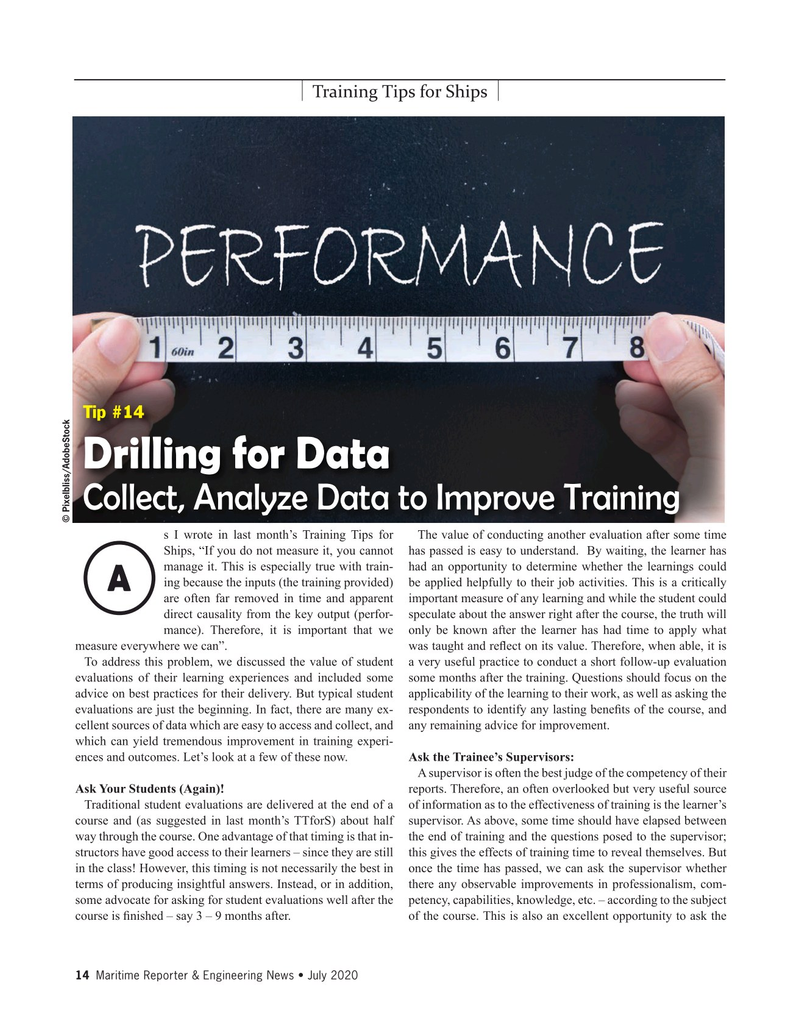
Page 14: of Maritime Reporter Magazine (July 2020)
Maritime Power Edition
Read this page in Pdf, Flash or Html5 edition of July 2020 Maritime Reporter Magazine
Training Tips for Ships
Tip #14
Drilling for Data
Collect, Analyze Data to Improve Training © Pixelbliss/AdobeStock s I wrote in last month’s Training Tips for The value of conducting another evaluation after some time
Ships, “If you do not measure it, you cannot has passed is easy to understand. By waiting, the learner has manage it. This is especially true with train- had an opportunity to determine whether the learnings could ing because the inputs (the training provided) be applied helpfully to their job activities. This is a critically
A are often far removed in time and apparent important measure of any learning and while the student could direct causality from the key output (perfor- speculate about the answer right after the course, the truth will mance). Therefore, it is important that we only be known after the learner has had time to apply what measure everywhere we can”. was taught and refect on its value. Therefore, when able, it is
To address this problem, we discussed the value of student a very useful practice to conduct a short follow-up evaluation evaluations of their learning experiences and included some some months after the training. Questions should focus on the advice on best practices for their delivery. But typical student applicability of the learning to their work, as well as asking the evaluations are just the beginning. In fact, there are many ex- respondents to identify any lasting benefts of the course, and cellent sources of data which are easy to access and collect, and any remaining advice for improvement.
which can yield tremendous improvement in training experi- ences and outcomes. Let’s look at a few of these now. Ask the Trainee’s Supervisors:
A supervisor is often the best judge of the competency of their
Ask Your Students (Again)! reports. Therefore, an often overlooked but very useful source
Traditional student evaluations are delivered at the end of a of information as to the effectiveness of training is the learner’s course and (as suggested in last month’s TTforS) about half supervisor. As above, some time should have elapsed between way through the course. One advantage of that timing is that in- the end of training and the questions posed to the supervisor; structors have good access to their learners – since they are still this gives the effects of training time to reveal themselves. But in the class! However, this timing is not necessarily the best in once the time has passed, we can ask the supervisor whether terms of producing insightful answers. Instead, or in addition, there any observable improvements in professionalism, com- some advocate for asking for student evaluations well after the petency, capabilities, knowledge, etc. – according to the subject course is fnished – say 3 – 9 months after. of the course. This is also an excellent opportunity to ask the 14 Maritime Reporter & Engineering News • July 2020

 13
13

 15
15
